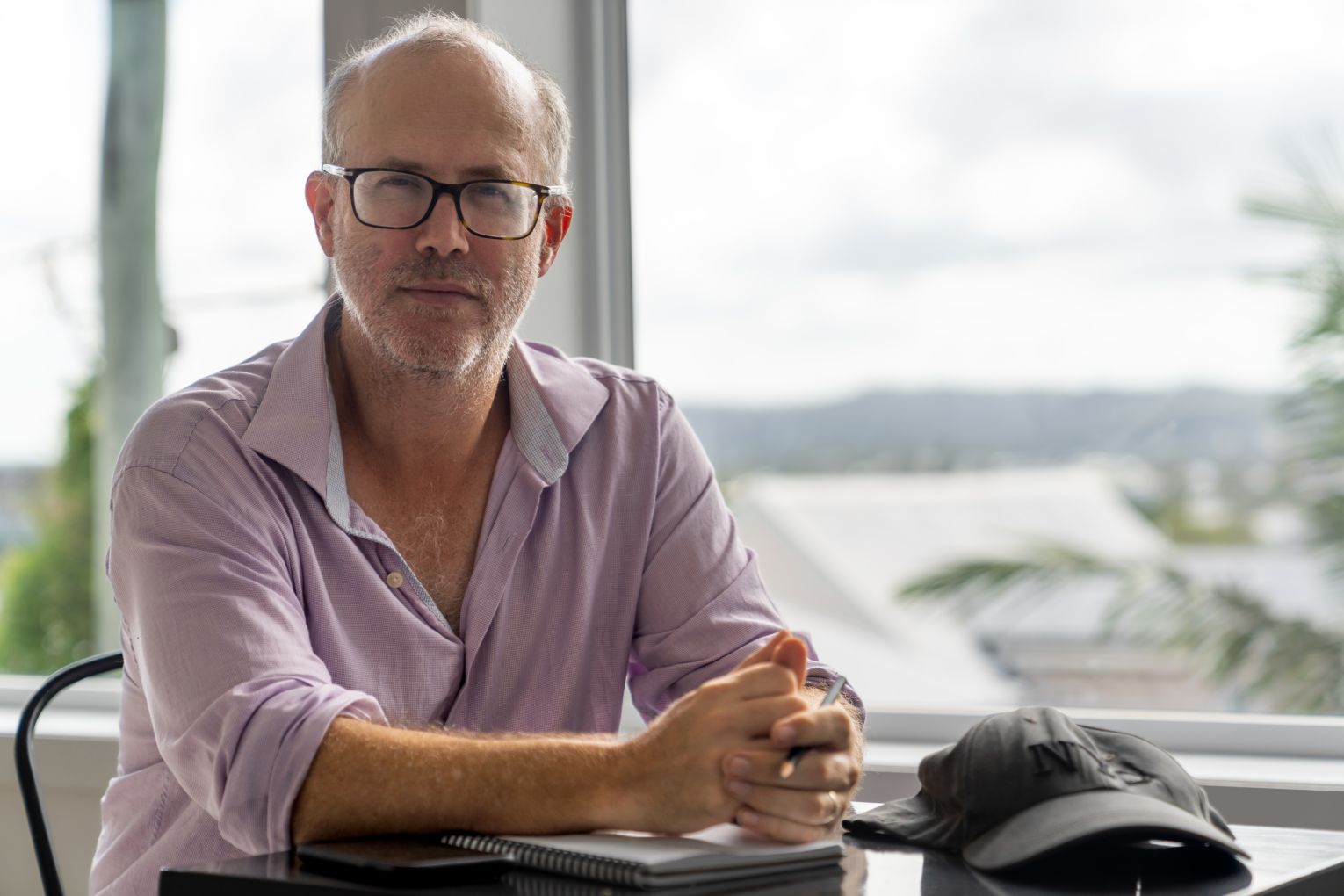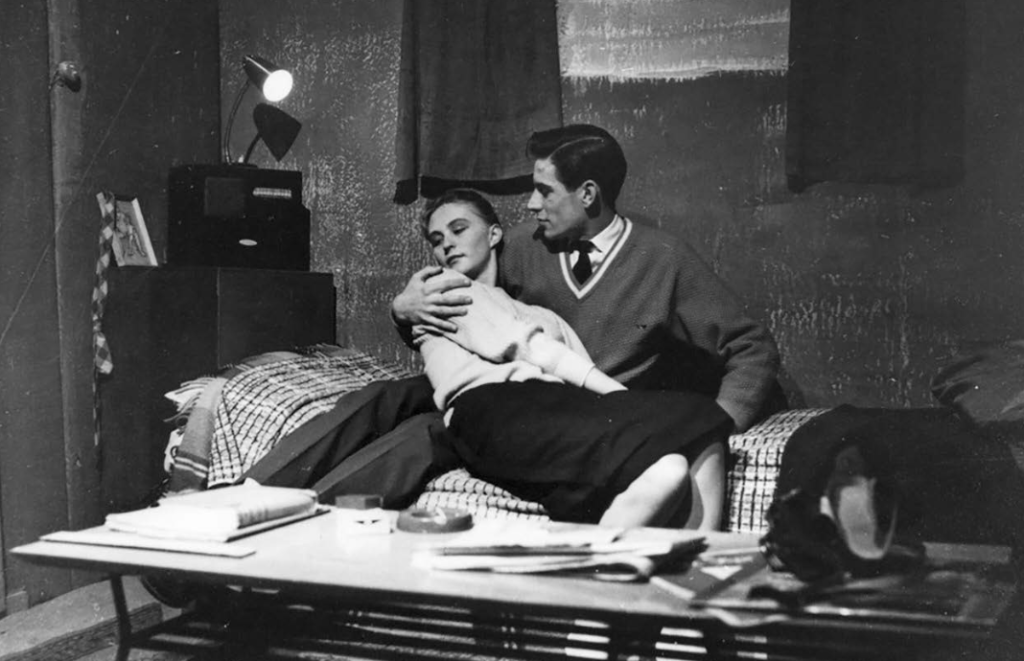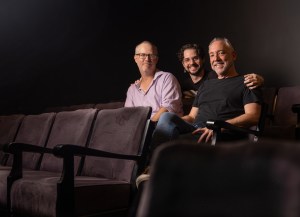New work revisits the staging of iconic ’60s play, The One Day of the Year
Alan Seymour classic The One Day of the Year was controversial when it was first staged, which Brisbane writer and film culture expert Stephen Vagg examines in his latest play.

There are many reasons why a writer will put pen to paper. The most common and noble of these is the cash grab, but there are others – ego, revenge, a desire to cheat death, wanting to create a good part for an actor so they will sleep with you (it worked for Arthur Miller), a combination of any or all of the above, or something else entirely.
At times, the reasons one writes are very clear. On other occasions they are more mysterious – so private the writer never wants to share them, or it’s something that even they don’t understand.
I’m fully aware of the main reason I wrote my latest play, The First Night (of the One Day of the Year). It was revenge. Not out of anything done to me but, rather, to a generation of artists who are now all dead. A generation that was never really allowed to “be”. I’ll explain.
The play is a fictitious account of the first performance of Alan Seymour’s classic stage drama The One Day of the Year in Adelaide in 1960. Seymour’s play, which concerned a family argument over the meaning of Anzac Day, had been recommended for production at the Adelaide Festival but that decision was overruled by the festival’s governors on the grounds the script might offend ex-servicemen.
This was a time when Australian cultural institutions like cinema chains, television stations and theatre managements were exceedingly hostile to local stories and extremely sensitive over any criticism of national sacred cows, like Anzac Day.
An amateur theatre group stepped in and produced the play, resulting in much controversy and a bomb threat or two. The First Night is my comic re-imagining of what might have happened on that first night backstage just before the curtain rises.

You might like
The idea for my play came out of research done for my PhD thesis at Macquarie University, something I signed up for in a mad panic during COVID because there was a scholarship going (as per the reference to writers’ motivations and cash grabs).
My thesis’s subject was early Australian television drama from 1956 to 1969, with a focus on the ABC and live television plays. Over the course of my research I became very familiar with the utter loathing at the time that so many gatekeepers had towards Australian content. Not, I stress, the public – who liked local stuff when they got the rare opportunity to watch it – but people in charge of what they watched.
Now, “loathing” is a strong word and certainly not everyone felt that way, but after three years of going through various archives, reports and papers, trust me, it’s not an inaccurate one.
There were – and are – two main enemies to Australian content. The first are commercial operators (cinemas, theatres, TV stations) who simply found it cheaper to import everything from Britain or the US. This attitude is understandable because, after all, they are running a business. So they need to be compelled to put on local stories.
The First Night is my tribute to a generation of artists whose careers were pointlessly wiped out
The second group was far less forgivable – cultural gatekeepers from the subsidised job sector (critics, academics, arts journalists, politicians, managers of subsidised theatre companies, ABC executives) who refused to put on or support local stories mostly because they simply hated them and continued to propagate the superiority of foreign culture.
Yes, there were exceptions to these, but the Australia-phobes were so strong, united, overwhelming and effective that they caused irreparable harm to us developing our country’s own culture.
As a result, during a time when Australia had the resources and population to easily support a decently sized local industry in film, TV and theatre – had there been protective quotas – we didn’t. Scores of genuinely talented and competent directors, actors, writers and producers who should have had life-long careers telling our stories were unable to find work at home, forcing them to go overseas (like Alan Seymour) – or give up.
Subscribe for updates
The First Night is my tribute to a generation of artists whose careers were pointlessly wiped out. I also wanted the play to draw attention to how many of the issues of 1960 are still with us today.

Broadcasters continue to cry poor whenever threatened with a quota and far too many bureaucrats and cultural gatekeepers are hostile to locally written material and wishing they were in London/Los Angeles, despite how much they insist they aren’t. The ABC is still a wonderful treasure that does a lot of good work but it also tends to misbehave whenever it has monopoly powers. Sydney and Melbourne persist in treating the outside states like backwaters while still taking money and people from those states.
Most of all, we still have a curious reluctance to introduce quotas when they are so simple, cheap and effective. Just as it took more than a decade to introduce a quota for drama on Australian commercial television, it has taken more than a decade to bring in quotas on streaming services. Neither delay was ever justifiable.
During drafting of The First Night, some original ideas changed. For instance, Alan Seymour was meant to appear as a character, but he didn’t earn his keep (writers tend to be a little boring as characters). Also, sometimes I stuck to the historical record while on other occasions I went “stuff it everyone” – though every attitude, comment and speech in the play has some basis in reality and many of the more absurd lines are direct quotes.
The play turned unexpectedly into a tribute to amateur theatre and those brave hardy souls who have always kept the flames of culture alive in this country, regardless of exploding stage lights, rickety floorboards and government inertia.
The First Night also became a love letter to Adelaide, a town I previously mostly associated with churches, cricket and serial killers, but which turned out to have a surprisingly wild history and much more in common with Brisbane than I realised. After all, both are smaller cities with a reputation for dullness, where the arty side of the population had to historically struggle against a conservative government. (South Australia even had its own version of Sir Joh, Thomas Playford, who also gerrymandered his way into power for a generation). And both had a bullying neighbour – Melbourne for Adelaide, Sydney for Brisbane.
The First Night (of the One Day of the Year) is being previewed for one night only on December 10 before, hopefully, a longer season next year. The rehearsed reading will take place in the new theatre space, Cosmos Theatre, at Ad Astra.
Thus, it’s the world premiere of a play in Brisbane about the world premiere of a play in Adelaide – and it’s world premiering a new Brisbane theatre space, too. Hope to see you there.
The First Night (of the One Day of the Year) plays the Cosmos Theatre, Ad Astra, Petrie Terrace, Brisbane, December 10, 8pm.
adastracreativity.com/productions/the-first-night-of-the-one-day-of-the-year
Free to share
This article may be shared online or in print under a Creative Commons licence

